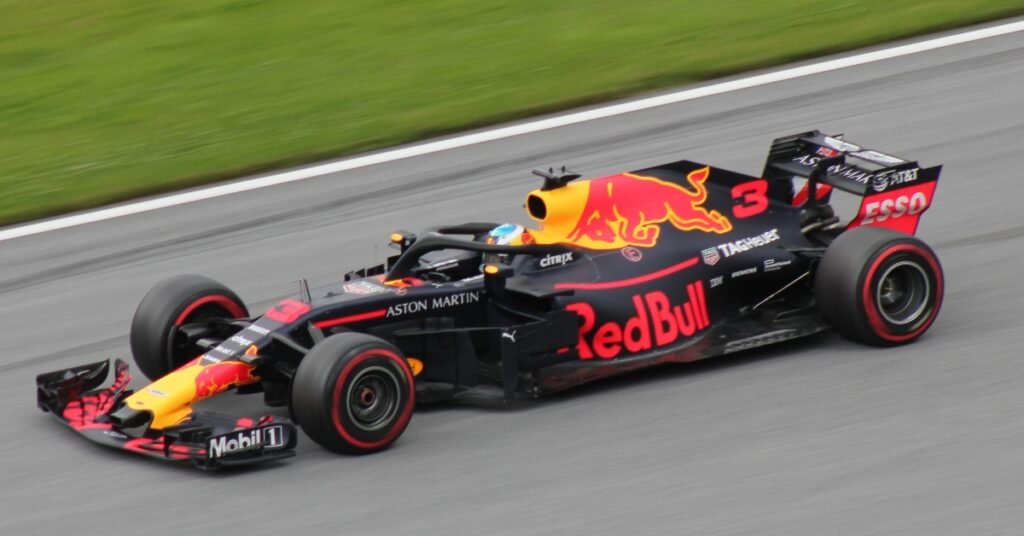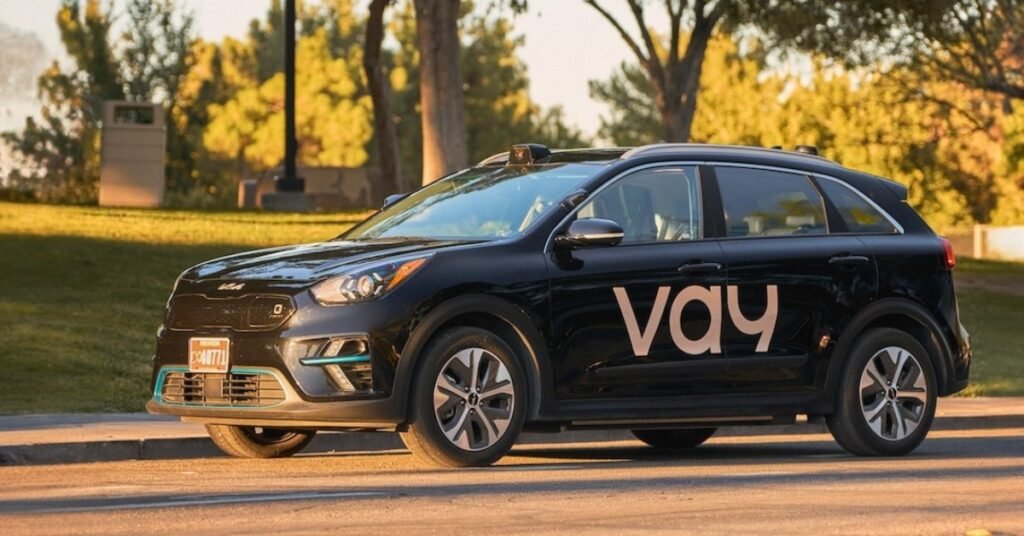Discover how Red Bull’s strategic marketing and dominance in Formula One has propelled them to the forefront of the energy drink industry.
Table of Contents
Formula One racing this season has witnessed the extraordinary dominance of driver Max Verstappen and team Red Bull.
What was once a sport fueled by tobacco sponsorship has now taken on a new energy with the fastest car on the grid backed by an unlikely source – an energy drink company.
Regarding commercial success, Red Bull’s prominent presence in Formula One aligns perfectly with the sport’s association with thrills, excitement, and glamour.
Any global brand would relish the opportunity to be in the spotlight of such an adrenaline-fueled spectacle.
The rise of Red Bull in the Formula One arena has been a meticulously engineered journey, reflecting the strategic tactics that have led to the company’s overall success.
The journey began in 1995 when Red Bull first stepped into Formula One by sponsoring the Sauber team.
Over the years, they acquired Jaguar Racing in 2004 and purchased Minardi in 2005, forming another group named Toro Rosso, now known as AlphaTauri.
Expanding from Energy Drinks to Global Domination
Red Bull’s ascent to becoming the leading energy drink industry is a testament to their focused drive towards Formula One’s elite, mirroring the tactics that have made them the biggest brand in a multi-billion-pound energy drink industry.
Despite concerns surrounding the health implications of their products, Red Bull’s clever marketing strategies have propelled them to the forefront of the industry.
In 2005, Red Bull’s founder, Dietrich Mateschitz, expressed:
“When we first started, we said there is no existing market for Red Bull. But Red Bull will create it.”
Mateschitz’s vision came to fruition, as Red Bull now stands as the third largest soft drink company globally, trailing only behind beverage giants Coca-Cola and Pepsi.
In 2021 alone, the company sold an astonishing 9.8 billion cans worldwide, solidifying its position as a major player in the beverage industry.
Red Bull’s appetite for expansion shows no signs of waning.
In a strategic move to capture the elusive young demographic globally, Red Bull allocated a significant portion of its annual revenue to sponsorship and advertising in 2020.
Approximately €1.6 billion (£1.4 billion), roughly a quarter of their revenue, was invested to target the desired audience actively.
Red Bull and its competitors have invested substantial resources to persuade Generation Z and millennials that energy drinks are essential for managing a modern lifestyle.
Sports Sponsorship: A Powerful Marketing Tool
The powerful relationship between sport and business surpasses Red Bull’s triumph in Formula One.
Historically, industries such as alcohol and tobacco have utilized sports sponsorship to circumvent other regulated marketing avenues.
Notably, when cigarette advertising was banned from UK broadcast media in 1965, tobacco brands found a gateway to widespread exposure through motor racing sponsorship.
Sport serves as an effective marketing tool for several reasons.
Firstly, it appeals to young consumers, enabling companies to establish strong brand loyalty from an early age.
The tobacco industry’s success throughout the 20th century demonstrated the power of recruiting customers at a young age, despite the potential health risks associated with smoking.
Secondly, the sport attracts a vast and diverse audience that can engage with it through various media channels at anytime.
Media mogul Rupert Murdoch recognized the immense appeal of live sports, which significantly expanded his media empire.
Lastly, sport ignites passion and devotion, qualities that brands eagerly seek to associate with their products.
The emotional connection between fans and their favorite teams or athletes creates a deep bond that companies strive to leverage through sponsorships.
Controversies Surrounding Energy Drinks
The association between sport and business comes with controversies, especially when industries that fund sports face scrutiny regarding the potential negative impacts of their products on fans.
The gambling and alcohol industries have faced similar criticism.
Yet, sport often avoids significant regulation regarding brand marketing, even when it targets young people, as is often the case with energy drinks.
Energy drinks, known for their high sugar and caffeine content, have been scientifically linked to unhealthy behaviors among young consumers, including poor psychological, physical, and educational well-being.
Several countries, including Lithuania, Sweden, and Turkey, have already implemented mandatory age restrictions on the sale of energy drinks.
The government introduced a similar proposal in the UK in 2019, but significant changes have yet to be implemented thus far, despite overwhelming public support.
While sports heavily rely on sponsors due to their expensive nature, finding alternative sources of funding that prioritize the well-being of fans would be a significant step forward for the sporting world.
Reducing the dependence on industries that may have detrimental effects on consumers, particularly the younger generation, could have long-lasting benefits.
For now, young sports fans find themselves surrounded by branded Red Bull merchandise, proudly displaying their allegiance.
However, monitoring and managing this brand loyalty is crucial to ensure it does not evolve into habits associated with gambling, alcohol, junk food, or excessive energy drink consumption.
In conclusion, Red Bull’s remarkable success in Formula One reflects the strategic marketing prowess of the energy drink giant.
Their journey from energy drinks to global dominance demonstrates the power of effective marketing and expansion efforts.
Nevertheless, the controversies surrounding energy drinks and their potential impact on young consumers highlight the need to examine sponsorship practices in sports carefully.
Finding alternative funding sources while prioritizing the well-being of fans would be a significant step forward for the sporting world.
FAQs
How has Red Bull become dominant in Formula One?
Red Bull’s dominance in Formula One can be attributed to their meticulous journey in the sport. They started sponsoring Sauber in 1995, acquired Jaguar Racing in 2004, and purchased Minardi in 2005, forming Toro Rosso (now AlphaTauri). Their focused drive, strategic marketing, and continuous expansion efforts have propelled them to the forefront of the sport.
Why is Red Bull’s presence in Formula One commercially appealing?
Red Bull’s prominent presence in Formula One aligns perfectly with the sport’s association with thrills, excitement, and glamour. Being showcased in a global sport that attracts a passionate audience offers significant marketing opportunities for any brand, allowing Red Bull to enhance its international visibility and brand image.
How has Red Bull achieved success in the energy drink industry?
Red Bull’s rise to becoming the leading energy drink brand can be attributed to clever marketing strategies and relentless expansion efforts. By creating a new market for energy drinks and effectively targeting the desired young demographic, Red Bull has established itself as a major player in the industry, selling billions of cans worldwide.
Why do companies choose sports sponsorship as a marketing tool?
Sport sponsorship is an effective marketing tool for several reasons. Firstly, it appeals to young consumers and helps establish strong brand loyalty from an early age. Secondly, sport attracts a vast and diverse audience, allowing companies to reach many potential customers. Lastly, the passion and devotion associated with sports create a positive brand association, making it an attractive platform for marketing campaigns.
What are the controversies surrounding energy drinks?
Energy drinks have faced criticism due to their high sugar and caffeine content. Scientific evidence suggests that regular consumption by young people is linked to unhealthy behaviors, including poor psychological, physical, and educational well-being. Some countries have implemented age restrictions on their sale to mitigate potential health risks.
Why does sports sponsorship often avoid regulation despite targeting young people?
Sport sponsorship, including that of energy drinks, often evades significant regulation when it comes to brand marketing. This can be attributed to various factors, including the difficulty of regulating sponsorships within the broader context of sports, the economic impact of support on sports organizations, and the influence and lobbying power of the sponsoring industries.
Are there efforts to find alternative funding sources for sports?
While sports heavily rely on sponsors due to their high costs, there have been discussions and calls for alternative funding sources that prioritize the well-being of fans. Finding a balance between financial support and ensuring the ethical and health considerations of sponsors is an ongoing topic of debate in the sporting world.
What is the potential impact of brand loyalty in sports sponsorship?
Brand loyalty cultivated through sports sponsorship can potentially translate into habits related to the sponsored products. Fans who view sponsors favorably may develop preferences and consumption habits associated with those brands, which could extend beyond sports and potentially influence behaviors related to gambling, alcohol, junk food, or energy drink consumption.
Get our best stuff sent straight to you! Join our WhatsApp Channel.






